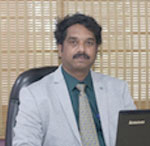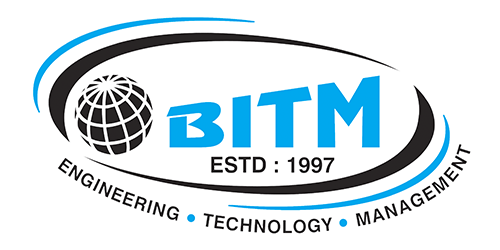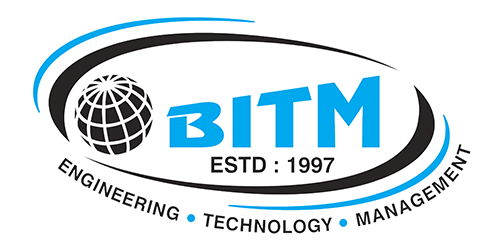
MASTER OF COMPUTER APPLICATIONS
The students will be encouraged to undergo various training programmes on soft skills, personality development, which helps shaping their career
Course Duration: 2 Years | Semesters: 4 |
It is a pleasure to head the Department of Master of Computer Applications. The department has a team of
experienced, qualified and motivated faculty members to prepare the young minds of our students for global
competition. Students are being educated in advancing technology, fostering innovation by inculcating industry
driven syllabus.
The curriculum designed by our department is intensive and hands-on, with an emphasis on theory and practical
that distinguishes from other institutions. The training imparted aims to prepare young minds for the challenging
opportunities in the IT industry with a global awareness supported by experts in the field of Computer Science
and its Applications. The department regularly organizes various professional development activities such as
workshops, webinar, industry interaction on current technological trends in IT sector. Department constantly
works for overall growth of students and inculcate the qualities/features that are required and acceptable by
society. Faculty/students take initiative for social causes at individual level and as a team under different
banners/clubs of the institute. Turning a student in to a good and proficient citizen is the prime aim of the
department.
To encourage meritorious students, the institution is providing special scholarship for student as a token of
gratitude in the name of the founder late Smt. Basavarajeswari amma.

Dr. Girish Kumar D
Diploma (CSE), B.E (ISE), M.Tech (CNE), PhD(Cloud Computing)
Head of the Department (HOD)
Dr. Girish Kumar D, HOD, MCA Department has more than 16 years of academic experience. He completed his B. E in Information Science & Engineering, M.Tech in Computer Networks and PhD with Cloud Computing as Specialization from VTU, Belagavi, Karnataka in the year 2021. His area of interest is Cloud Computing, Artificial Intelligence, Machine Learning, Block Chain Technology, Network Security and has published more than 16 papers in various International & National Journals. He has won two “Best Paper” award in International Conference (CETSTES) in the year 2018 and published 4 Indian Patent Rights, 4 patents are in review process. He is a Coordinator for BOS & BOE for CSE & AIML Department, BITM and has organized more Programmes as a Co-coordinator, courses, delivered guest lectures and attended more conferences, SDPs, FDPs, Seminars, Workshops, etc. Last but not least his dedication and commitment towards the organization cannot be eluded.
Contact us
Mobile: +91 9886954954
E-Mail-ID: girishkumar@bitm.edu.in
Vision:
"To prepare students for the challenges of the future, while fostering innovation and advancing technology, through education"
Mission:
- To impart high-standard, value-based technical education in all aspects of Computer Applications.
- To cultivate ethical, motivated, and skilled postgraduates through a blend of theoretical knowledge and practical applications.
- To nurture proficient professionals among students, empowering them to serve society through research and innovation.
Programme Educational Objectives (PEO's):
- PEO1: To produce proficient post graduates ready to work with a sense of ethics, social responsibility and enabling them to work efficiently individually and also as a team.
- PEO2: To contribute to the society and industry as an Engineer through deep knowledge acquired in core engineering.
- PEO3: To develop new processes and implement the solutions for industrial problems.
Program Outcomes (PO's):
- PO1: Computational Knowledge: Understand and apply mathematical foundation, computing and domain knowledge for the conceptualization of computing models from defined problems.
- PO2: Problem Analysis: Ability to identify, critically analyse and formulate complex computing problems using fundamentals of computer science and application domains.
- PO3: Design / Development of Solutions: Ability to transform complex business scenarios and contemporary issues into problems, investigate, understand and propose integrated solutions using emerging technologies.
- PO4: Conduct Investigations of Complex Computing Problems: Ability to devise and conduct experiments, interpret data and provide well informed conclusions.
- PO5: Modern Tool Usage: Ability to select modern computing tools, skills and techniques necessary for innovative software solutions.
- PO6: Professional Ethics: Ability to apply and commit professional ethics and cyber regulations in a global economic environment.
- PO7: Life-long Learning: Recognize the need for and develop the ability to engage in continuous learning as a Computing professional.
- PO8: Project Management and Finance: Ability to understand, management and computing principles with computing knowledge to manage projects in multidisciplinary environments.
- PO9: Communication Efficacy: Communicate effectively with the computing community as well as society by being able to comprehend effective documentations and presentations.
- PO10: Societal & Environmental Concern: Ability to recognize economical, environmental, social, health, legal, ethical issues involved in the use of computer technology and other consequential responsibilities relevant to professional practice.
- PO11: Individual & Team Work: Ability to work as a member or leader in diverse teams in multidisciplinary environment.
- PO12: Innovation and Entrepreneurship: Identify opportunities, entrepreneurship vision and use of innovative ideas to create value and wealth for the betterment of the individual and society.
Program-specific outcomes
- PSO1: Analyse, design and implement solutions in the field of Computer Applications to solve computational tasks and model real world problems.
- PSO2: To demonstrate knowledge, skills, and strategies to design effective marketing capabilities in the real-world environment.
- PSO3: Ability to explore technological advancements in various domains, identify research gaps by providing solution to new ideas and innovations..
| S. No | Name | Designation | Gender | Qualification | Experience (In Months) | Currently working with institution? | Joining Date | Leaving Date | Association type |
| 1 | Dr. GIRISH KUMAR D | Professor & HOD | Male | B.E(ISE), M.Tech (CNE), PhD(Cloud Computing) | 17 Years 2 months | Yes | 5/9/2011 | --- | Regular |
| 2 | Dr. S DADA NOOR HAYATH ALI | Associate Professor | Male | M.Sc.,M.Phil.,Ph.D | 15 Years | Yes | 21/09/2023 | --- | Regular |
| 3 | Mrs. Sharvani V. | Assistant Professor | Female | B.Sc., M.C.A. | 11 Years | Yes | 2/11/2023 | --- | Regular |
| 4 | Mrs. Subhasree D C | Assistant Professor | Female | B.C.A., M.Sc.(C.S.) | 7 Years | Yes | 6/10/2023 | --- | Regular |
| 5 | Mrs.Jennifer Mary Sagayraj | Assistant Professor | Female | B.C.A.,M.C.A. | 8 Years | Yes | 02/05/2024 | --- | Regular |
| 6 | Ms. Nandini G. | Assistant Professor | Female | B.C.A.,M.C.A. | Yes | 1/1/2024 | --- | Regular |
| S. No | Name | Designation | Gender | Qualification | Experience (In Months) | Currently working with institution? | Joining Date | Leaving Date |
| 1 | Pavan Kumar Y M | Instructor | Male | Diploma in CSE | 2 Years | Yes | 01/09/2014 | --- |
| 2 | Ramesh Nayak | Attender | Male | 10th | 10 Years | Yes | 04/03/2024 | --- |
| SN | Name of the Laboratory | Size in square Meters | No. of Computer System | Configuration | Lab Manual |
| 1 | MCA-Computer Lab | 181.18 | 70 | Intel Core i5 3.40GHz, 512GB SSD, Windows 11 OS, Dell Monitors, Dell Keyboards, Dell Mouse | Yes |
| .No | Year | Department | Download Files |
|---|---|---|---|
| 1 | 2023-25 | MCA | Click Here |
- The department encourages the students to excel in both academics as well as extracurricular activities.
- The department will also conduct seminars regularly on technical and other related fields for the benefit of the students
- Industrial visits will also be arranged for the students so that they keep in touch with a real time software development
- The students will be encouraged to undergo various training programmes on soft skills, personality development, which helps shaping their career
- The EDUSAT program introduced by VTU will be made to use effectively by the students on latest technologies like .NET, J2EE etc
- The department consists of well experienced and qualified faculty members
- The faculty members are encouraged to enhance their knowledge by attending seminars, workshops & conferences.
- Research work is also appreciated.
To be recognized as a centre of excellence in the field of Computer Applications in order to develop professionals having right knowledge, skills and attitude to serve the ever changing industry and the society.
Mission
To achieve professional excellence through quality education in Computer Applications and there by develop a competitive professionals with proper leadership, commitment and moral values
| 1 | Mr. B Hari Prasad | Assoc. Prof. & HOD-MCA | B.SC, MCA / M.TECH. | 18 |
| 2 | Mr. Vedavyas J | Asst. Prof. & Asst. HOD | BCA, MCA | 09 |
| 3 | Mr. Saifullah. B | Assistant Prof.- MCA | B.SC., M.TECH. / M.SC. | 10 |
| 4 | Mrs. Divya Latha Y | Assistant Prof.– MCA | B.COM, MCA | 06 |
| 5 | Mr. Venkatesulu S | Assistant Prof.– MCA | BCA, MCA | 08 |
| 6 | Mr. Nagaraj S | Assistant Prof.– MCA | B.SC, MCA | 05 |
| 7 | Mr. Srinivasa Reddy.M | Assistant Prof.– MCA | B.SC, MCA | 05 |
| 8 | Mr. Ramakanth K | Assistant Prof.– MCA | BCA, MCA | 05 |
| 9 | Ms. Vinitha A | Assistant Prof.– MCA | B.SC., M.SC. CS | 01 |
| 10 | Ms. Rohini Patil | Assistant Prof.– MCA | BE (CSE), M.TECH. (CSE) | 01 |
| 11 | Ms. Nandini B | Assistant Prof.– MCA | BE (CSE), M.TECH. (CSE) | 01 |
| 12 | Ms. Nirmala B Ganiger | Assistant Prof.– MCA | BE (CSE), M.TECH. (CSE) | 01 |
Programme Educational Objectives
- Graduates will apply fundamental knowledge of computing and mathematics appropriate to the discipline
- Graduates will have an ability to identify, analyze and formulate the computing requirements appropriate to its solution
- Graduates will have the ability to design, implement, and evaluate a computer-based system to solve real time issues.
- Graduates will able to design, develop and conduct experiments of software systems of varying complexity to analyze and interpret data and synthesize the information to provide valid conclusions.
- Graduates will have an ability to use current techniques, skills, and tools necessary for computing practice currently in use in academia and industry
- Graduates will apply social, safety, legal issues and the consequent responsibilities to the computer engineering solutions
- Graduates will understand the impact of professional engineering solutions in environmental contexts and the need for sustainable development.
- Graduates will apply ethical principles and commit to professional ethics and responsibilities and norms of the computer engineering practice.
- Graduates will have the ability to function effectively as an individual, or on teams to accomplish a common goal
- Graduates are able to communicate effectively, both written and oral, with a range of audiences
- Graduates will apply knowledge and understanding of principles of management and finance in relation to engineering projects as a member or team leader.
- Graduates will have the recognition of the need for and an ability to engage in independent and life-long learning professional development.
The main objective of MTLC is to bridge the gap between the Industry and Institute by adopting innovative Teaching / Learning platforms and to enhance the three essential attributes of engineering graduates such as Deeper Learning, Communication, and Collaboration. Each project batch consists of students from CSE, ISE, ECE, and EEE. Each batch will develop collaborative project. In the first batch of MTLC seven projects are certified by Wipro out of total 10 projects.
 Ranked #15
Ranked #15
Ranked as 15th Best Engineering College in Karnataka by Edu-Rand Magazine Engineering College Raknking 2015
 Ranked #6
Ranked #6
Ranked 6th in Top 10 Private Colleges in Karnataka (http://pickacollege.digit.in/)

